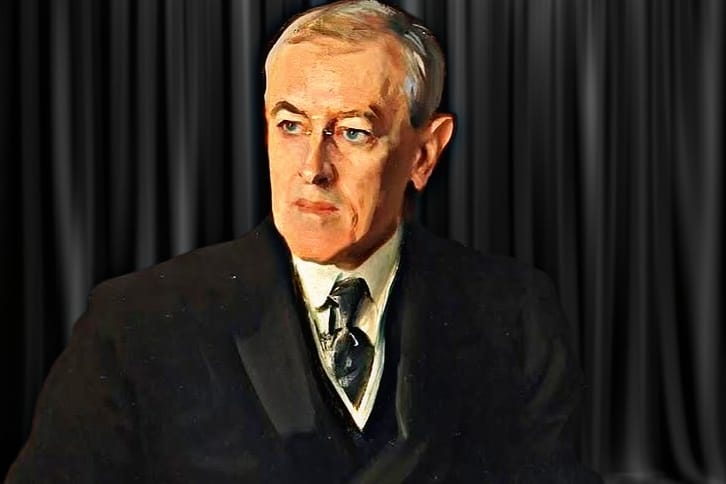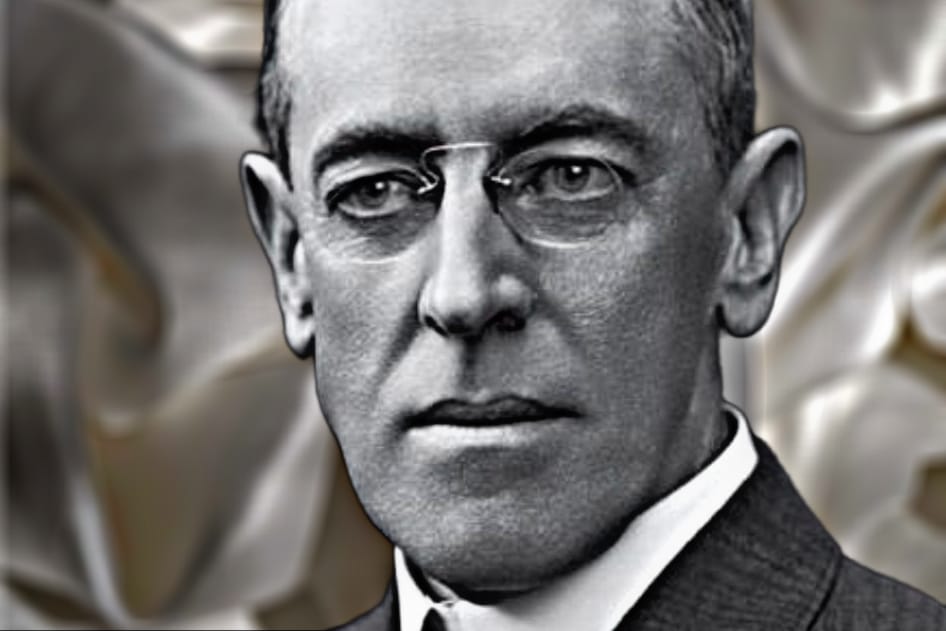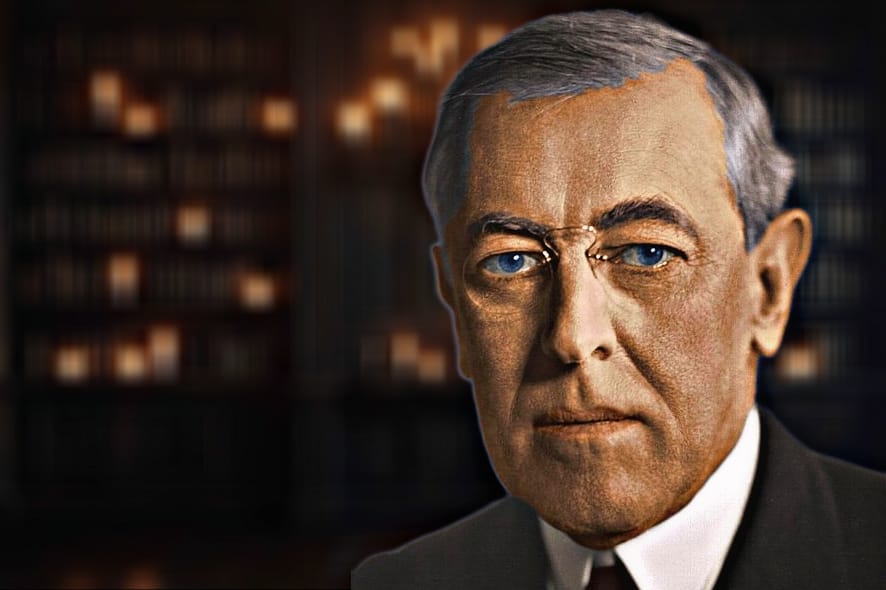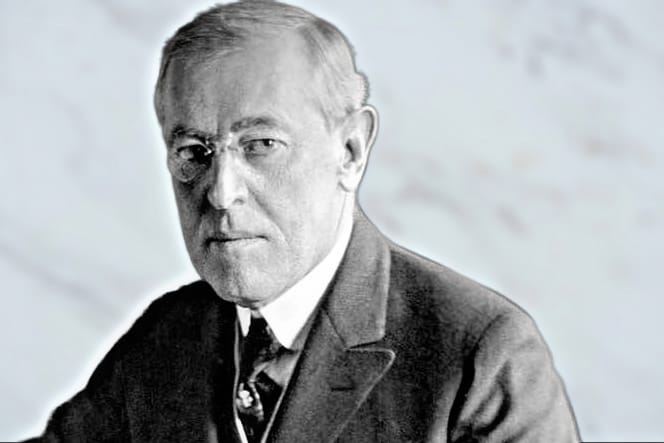Wilson Woodrow 14 Points remains one of the most significant speeches in the history of modern diplomacy. Delivered by U.S. President Woodrow Wilson on January 8, 1918, during the height of World War I, this landmark address outlined his vision for a just and lasting peace following the end of the war. In the aftermath of the devastating conflict, Wilson proposed a framework for peace that sought to prevent future wars and promote cooperation among nations through principles of self-determination, open diplomacy, and collective security. The Wilson Woodrow 14 Points would go on to shape global politics and international relations, influencing both the peace negotiations following World War I and the creation of the League of Nations.
In this article, we will delve into the Wilson Woodrow 14 Points, exploring their context, significance, and lasting impact. Through an in-depth analysis of each point, we will examine how Wilson’s vision for peace sought to address the underlying causes of the war and create a more stable, fair, and cooperative international order.
The Context Behind Wilson Woodrow 14 Points
The world was in chaos when Wilson first articulated his vision for peace. World War I, which had begun in 1914, had already claimed the lives of millions of soldiers and civilians. The conflict pitted the Allied Powers, including France, the United Kingdom, and Russia, against the Central Powers, led by Germany, Austria-Hungary, and the Ottoman Empire. By 1918, the war had reached a stalemate, with neither side able to achieve a decisive victory.
Woodrow Wilson, who had been elected president of the United States in 1912 on a platform of progressive reform, initially sought to keep the United States out of the war. However, after years of provocation, including Germany’s unrestricted submarine warfare and the interception of the Zimmermann Telegram in early 1917, the U.S. declared war on Germany in April 1917. Wilson, however, was determined that the U.S. would not simply join the war to defeat the Central Powers, but would also contribute to shaping the postwar world.
By January 1918, as the war raged on, Wilson sought to offer a new vision for the future. In a speech before Congress, Wilson outlined his 14 Points. The points were intended to serve as the foundation for peace negotiations and to ensure that the postwar settlement would be fair and equitable. Wilson believed that a just and lasting peace would require addressing not only the immediate causes of the war but also the structural issues in international relations that had made war a recurring threat in the first place.
The Wilson Woodrow 14 Points: A Breakdown

Wilson Woodrow 14 Points can be broken down into several- diplomacy, territorial integrity, self-determination, economic cooperation, and collective security. Below is a detailed examination of each of the points:
1. Open Diplomacy and No Secret Treaties
The first of Wilson Woodrow 14 Points called for an end to secret treaties between nations. Wilson believed that secret diplomacy, often conducted behind closed doors, had been one of the primary causes of conflict. Such treaties could bind countries to actions that they might not have agreed to in the public eye, fostering distrust and suspicion.
By advocating for open diplomacy, Wilson sought to create a transparent and accountable international system. This would not only prevent future misunderstandings but also allow public opinion to play a role in shaping international relations.
2. Freedom of Navigation on the Seas
The second point of Wilson Woodrow 14 Points emphasized the importance of freedom of the seas. During the war, Germany’s unrestricted submarine warfare campaign had led to the sinking of civilian and commercial ships, which escalated tensions, particularly with the United States. Wilson argued that the free movement of ships on the high seas should be a fundamental principle of international law, allowing nations to engage in trade and travel without fear of interference or aggression.
Wilson’s call for open navigation was also designed to ensure that international trade could thrive without the disruptive effects of naval blockades or unilateral actions by individual powers.
3. Free Trade Between Nations
Wilson’s third point advocated for the removal of economic barriers and the establishment of free trade between nations. He argued that trade restrictions—such as tariffs and quotas—had contributed to economic rivalry and were a source of international tension. By promoting free trade, Wilson hoped to foster cooperation between nations and create a more prosperous global economy that would be less prone to conflict.
4. Reduction of Armaments
The fourth point focused on the reduction of armaments to the lowest possible levels consistent with national security. Wilson believed that the arms race, where countries continuously expanded their military capabilities, was a major factor in the escalation of global tensions. By reducing armaments, Wilson hoped to alleviate the pressures that led nations to war and to promote a climate of peace.
5. Adjustment of Colonial Claims

Wilson’s fifth point dealt with the issue of imperialism. While acknowledging the rights of colonial powers to administer their territories, Wilson called for a fair and equitable adjustment of colonial claims, taking into account the interests of both the colonial powers and the populations living in the colonies. This was part of Wilson’s broader effort to promote the principle of self-determination, particularly for oppressed peoples around the world.
While Wilson’s calls for colonial reforms were groundbreaking, they were not without contradictions. His advocacy for self-determination often applied only to certain regions, and many colonial powers, including Britain and France, were reluctant to relinquish control over their empires.
6. Self-Determination for Nations
One of the most important themes in the Wilson Woodrow 14 Points was the principle of self-determination. Wilson argued that all peoples should have the right to determine their political future and choose their form of government. This point was particularly significant for the various ethnic groups in Europe, such as the Czechs, Poles, and Yugoslavs, who had long been under the control of empires like Austria-Hungary and the Ottoman Empire.
Wilson’s vision of self-determination extended to Europe’s colonies and other non-European regions as well. This idea would later become a driving force behind decolonization movements in the 20th century, although its application was often inconsistent and selective.
7. Evacuation of Occupied Territories
The seventh point called for the evacuation and restoration of territories that had been occupied during the war. This was primarily focused on Belgium, which had been invaded by Germany at the start of the war, but also applied to other areas in Europe and around the world. Wilson believed that military occupations violated the principles of sovereignty and territorial integrity.
8. Creation of a League of Nations
The eighth point of Wilson Woodrow 14 Points outlined the establishment of a League of Nations, an international organization designed to promote peace, security, and cooperation among countries. Wilson’s vision for the League was to create a forum where nations could resolve disputes peacefully, reduce the likelihood of war, and collectively address global challenges such as disease, poverty, and disarmament.
The League of Nations was a revolutionary idea at the time and laid the groundwork for the establishment of the United Nations after World War II. However, the League’s failure to prevent the rise of Nazi Germany and its inability to maintain authority in the face of aggression from authoritarian regimes would later serve as a cautionary tale.
9. Restoration of Polish Sovereignty

Wilson’s ninth point called for the restoration of an independent Poland. At the time, Poland was partitioned between the Russian, German, and Austro-Hungarian Empires. Wilson believed that the Poles should have the right to create their own nation-state, a vision that would come to fruition after the war when Poland regained its independence.
10–13. Adjustment of Borders and Territorial Integrity
Points ten through thirteen focused on the adjustment of borders in Europe, particularly in areas where new national identities had emerged or where ethnic minorities sought self-determination. These points were aimed at ensuring that nations like Italy, France, and others could secure their borders and territories based on national identity. The goal was to create a more stable Europe by addressing ethnic and nationalist grievances, though the process was highly complicated and left lingering disputes, particularly in Eastern Europe.
14. The League of Nations
The final point was the cornerstone of Wilson Woodrow 14 Points vision: the establishment of the League of Nations. Wilson believed that the League would be the institution through which nations could discuss and resolve conflicts without resorting to war. His ideal was a collective security system where aggression by one state would be met with collective action from all members, preventing future wars.
The Aftermath and Challenges of the Wilson Woodrow 14 Points
While the Wilson Woodrow 14 Points were hailed as a noble vision for a better world, they faced significant challenges in their implementation. Following the end of World War I, the Treaty of Versailles was negotiated, but many of Wilson’s points were compromised or ignored. The League of Nations, for example, was established, but the United States never joined it due to opposition in the Senate. Moreover, many of Wilson’s ideas for self-determination were undermined by the realities of European imperialism and postwar politics.
Despite these challenges, Wilson Woodrow 14 Points had a lasting impact. They laid the foundation for international institutions like the United Nations and influenced the course of decolonization in the 20th century. Moreover, the principles of open diplomacy, free trade, and collective security would continue to shape global discourse, even if the full realization of Wilson’s vision remained elusive.
Conclusion: Wilson Woodrow 14 Points and Their Enduring Legacy
The Wilson Woodrow 14 Points represented a bold attempt to reshape the international order in the aftermath of World War I. While not all of Wilson’s ideas were fully realized, his vision for a world based on cooperation, self-determination, and collective security influenced the global political landscape for generations. From the formation of the League of Nations to the eventual creation of the United Nations, Wilson Woodrow 14 Points principles continue to resonate in the efforts to promote peace and diplomacy in an often-turbulent world. The Wilson Woodrow 14 Points remind us that idealism in foreign policy, even when challenged, can leave an indelible mark on history.

